A continuation of recent protests against police brutality in Boston ended largely peacefully Tuesday night after Sunday’s march resulted in citywide riots.
Several police kneeled before the crowd at the Boston Police Headquarters, and in Jamaica Plain, officers approached protesters to facilitate a conversation.
Confrontations balanced on the cusp of violence at several points throughout the evening, but a majority of protesters tried to quell the tension each time someone’s actions threatened to escalate a situation.
An organized vigil began around 5 p.m. at Roxbury’s Franklin Park, where supporters of the Black Lives Matter movement gathered to listen to speakers as State and Boston Police watched from behind.
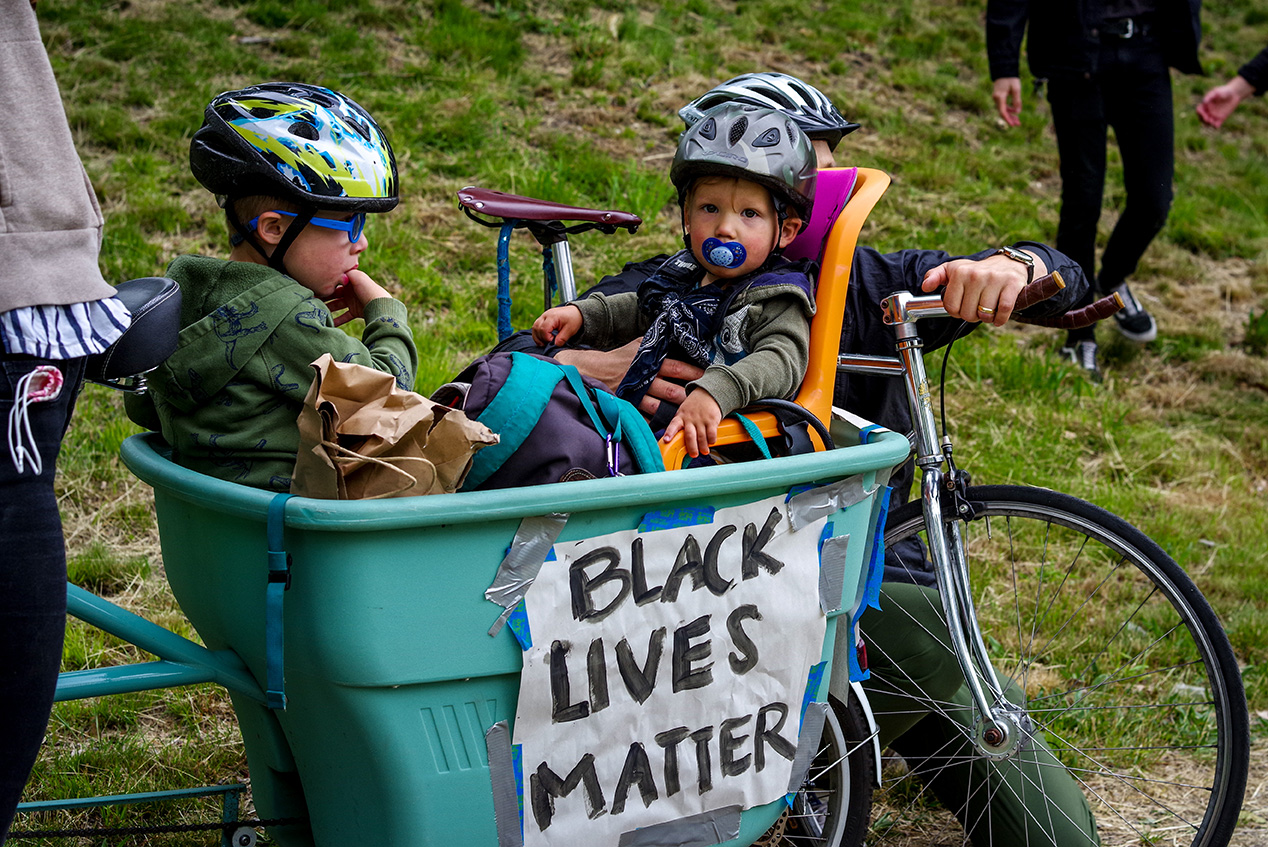
But as the assemblage began to disperse after the event, a string of police cruisers drove into the park with sirens on. Protesters soon surrounded the vehicles, obstructing them as they then attempted to reverse.
“This was a peaceful protest,” one protester shouted. “Why are you here right now?”
Police, wearing neon yellow traffic vests, formed two lines to block the crowd on either side of the cars, occasionally pushing protesters back with wooden batons.
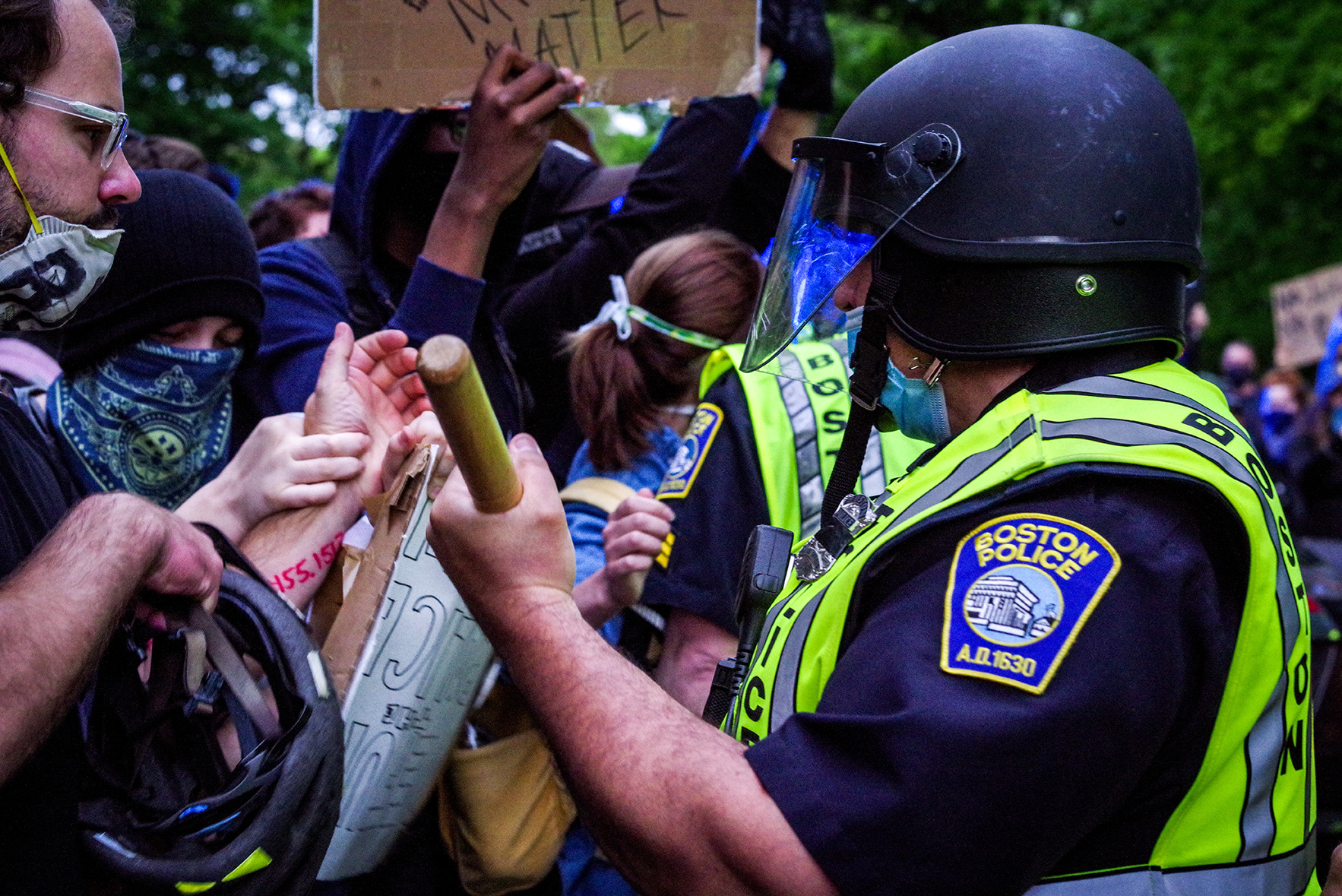
The officers ultimately retreated from the park to jeers and chants from these activists, who followed them to Forest Hills Station in Jamaica Plain.
There, police formed a line outside the station around 7:30 p.m. and faced the congregation of protesters. Kneeling before the officers, they continued to chorus and plead with the cops to kneel alongside them.
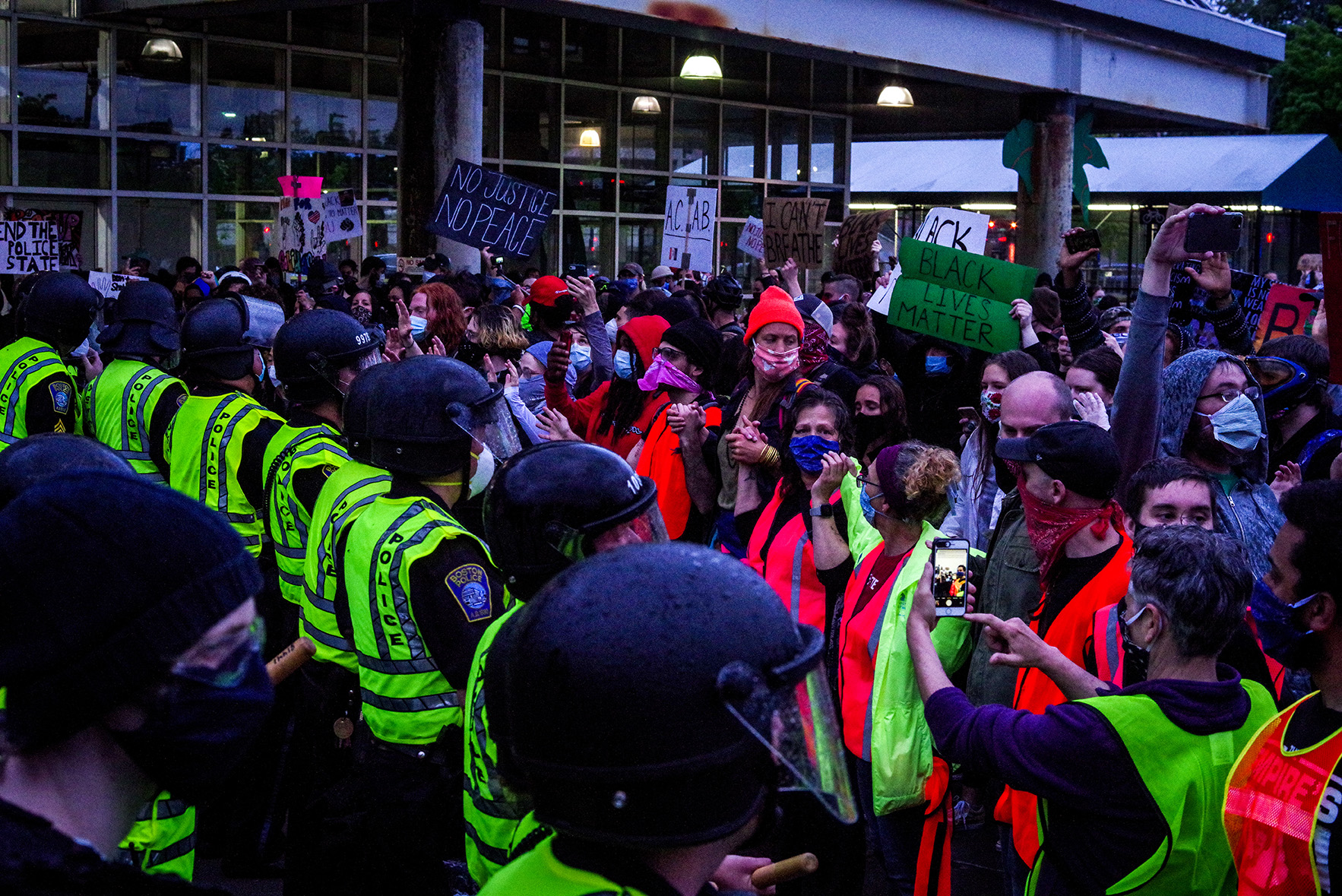
“All you have to do is take a knee and we’ll go home.”
“If you care about Black lives, take a knee.”
“Take a knee, put your pride aside.”
Protestor Khloe Mitchell was the leading voice among the crowd, calling on officers to acknowledge their request to show solidarity and instill hope that younger Black generations may inherit a different future.
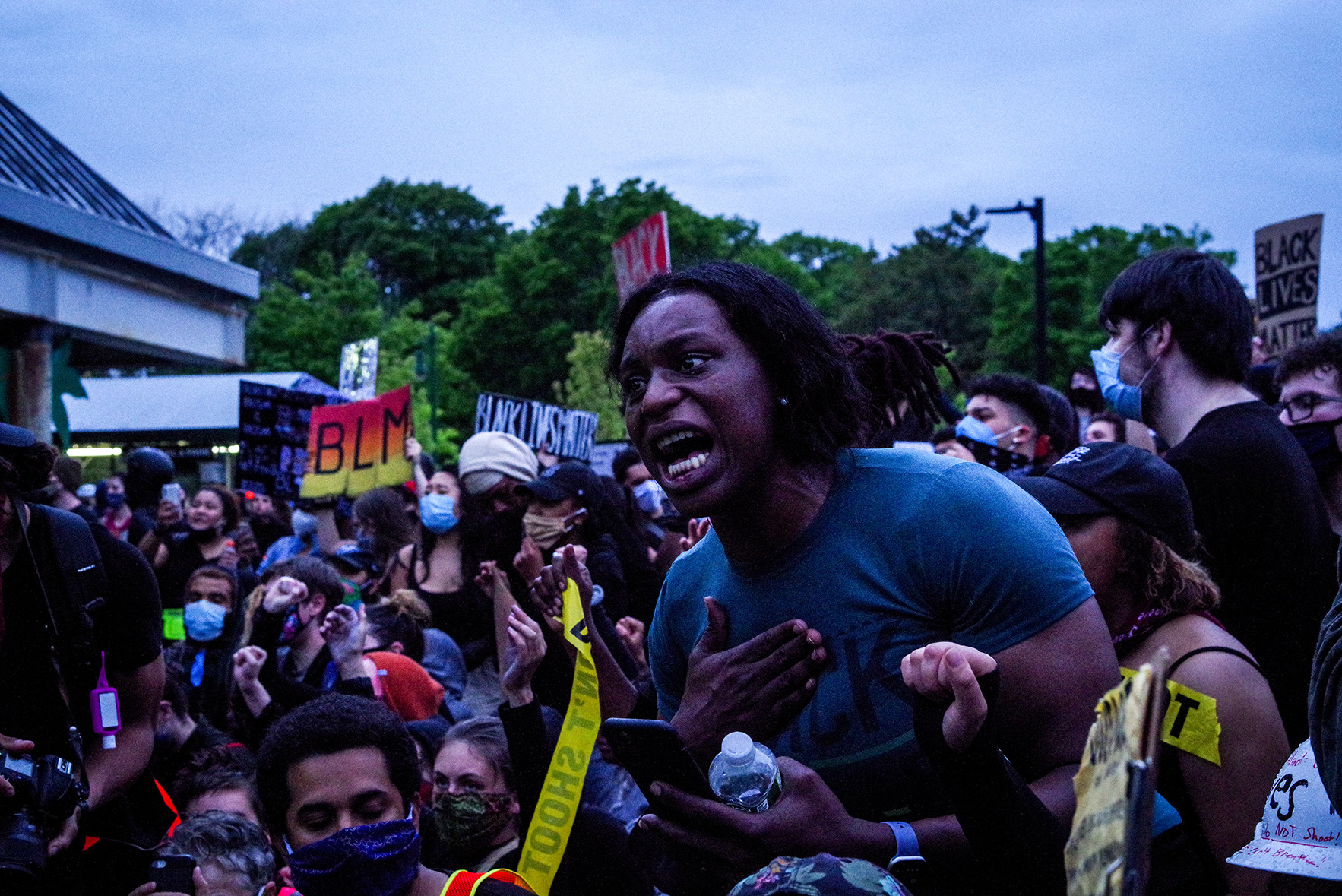
“If the world sees it, it’ll stop,” Mitchell said to police, referring to the protests. “Just like you risk your life to protect every day, I’m going to risk my life so they have a future tomorrow.”
An hour into the face-off, Transit Police Officer Richard Sullivan took the first knee. He remained the only officer to have done so when the line of police attempted to clear out around 9 p.m.
Meanwhile around this time, however, a different scene was playing out in Roxbury: a group of officers at the Boston Police Headquarters took to their knees for several minutes as protestors there cheered.
But back at Jamaica Plain, protesters were not letting officers off the hook. They marched in pursuit until a pack of police from the North Eastern Massachusetts Law Enforcement Council approached on motorcycles, warning of arrests if the crowd did not move off of the road.
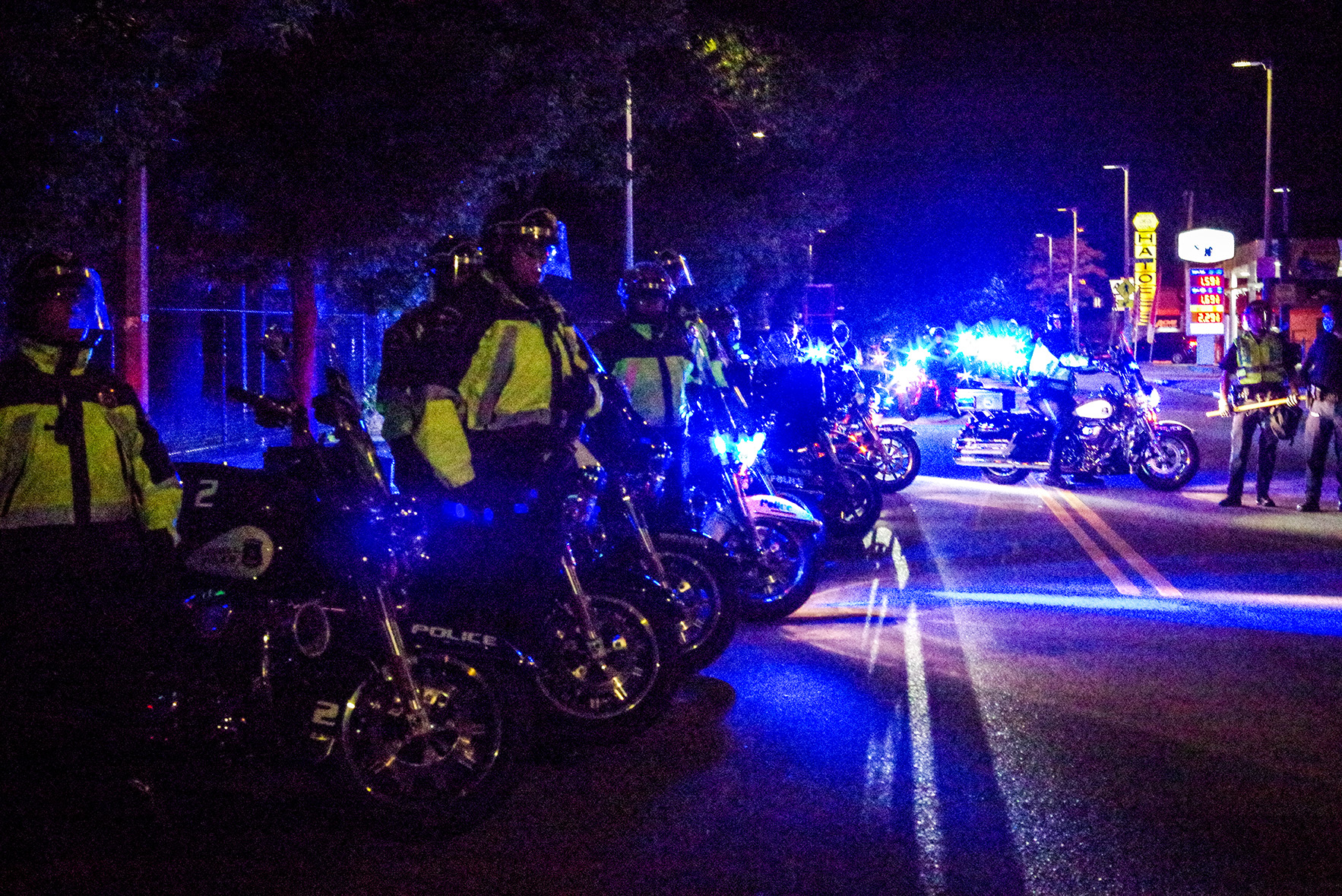
One marcher who had pleaded with an officer as they moved was 24-year-old Chaudeline Francois, a Black woman with a four-year-old son and a 19-year-old brother. She said in an interview she came out to protest because she is afraid, but shouldn’t be, every time her brother ventures outside.
“The kind of future that I would want for my son is a future where he can feel like he can go to a police officer and just have simple, everyday conversations with them,” Francois said. “I’m a young Black woman, so I will never fully understand what young Black men go through. But I know that I do have a Black son.”
Soon, the police convened on one sidewalk while protesters took the opposite. Upon arriving at the District E-13 station, the officers moved behind a metal barricade before facing the marchers once again, batons still in hand.
Over the next hour, the march evolved into a sit-in protest as clusters of people first kneeled, then sat on the sidewalks awaiting some conclusion. Across the street at the barricade, a handful of these protesters were attempting negotiations.
Yet, antagonistic chants rose periodically from the other side.
“You guys can change that view. All we want to do is change that view,” 28-year-old Sam Hyun said to Sergeant Cottone, who declined to give her first name. “You guys are people just like us.”
Cottone conversed with the negotiators, sharing her own college memories and making jokes. She told them she appreciates how peaceful the protests had been that night.
Still, she repeatedly said her officers could not speak with protestors.
Near 10:30 p.m., however, the walls began to break down.
Cottone crossed the street along with officers Antonette Ramsay and William Jones to hear protesters’ concerns and begin a discussion.
One woman said she understands their jobs may be on the line if they were to take a knee, but Black lives have been on the line for “over too long.” There’s a reason, she said, that protests across the country have not been peaceful.
“I’ve been begging y’all for over four hours to take a knee,” she said to the trio. “Nobody, nobody, nobody. At the least, show that y’all hear us.”
In response, Ramsay dropped to her knee.
“I will not lose my job if I got on my knee,” Ramsay said. “[But] it doesn’t change the system.”
After the three officers were called back by their colleagues, Hyun addressed the protestors, many of whom remained dissatisfied. While the fight for change is not over, he said, such a conversation still proved a unique step forward.
“You guys peacefully advocated for change and you started a conversation,” Hyun said. “How many other communities right now, how many other protests around this country, can say that?”
As they agreed to disperse and head home, several protestors exchanged contact information and offered each other rides home.
By 11 p.m., the night’s protests had mostly concluded across the city — even as the National Guard kept its heavy presence in a near-empty Downtown Boston.





















































































































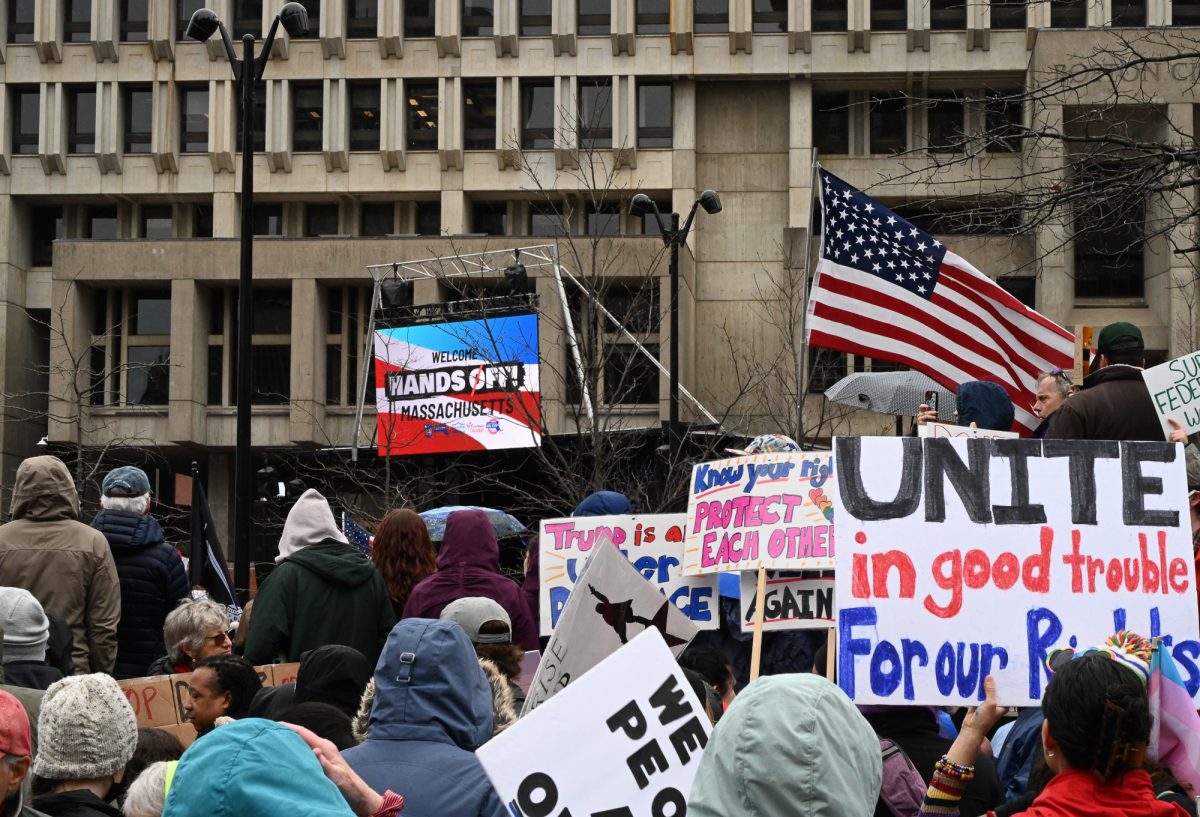
Desmond Molloy • Jun 3, 2020 at 7:58 am
As long as Boston Police continues to use its internal affairs process to protect short-tempered officers like John Locke, who attempted to escalate a confrontation to a violence/arrest point during the 2018 Red Sox World Series parade, and brings out police dogs whenever confronted with a crowd, these gestures will be little more than a PR exercise.